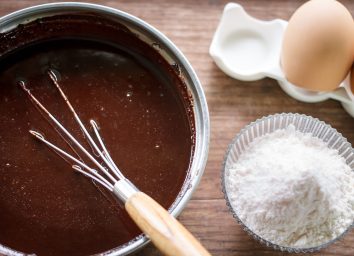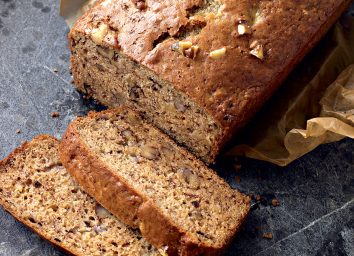The Difference Between Baking Soda and Baking Powder Every Baker Should Know
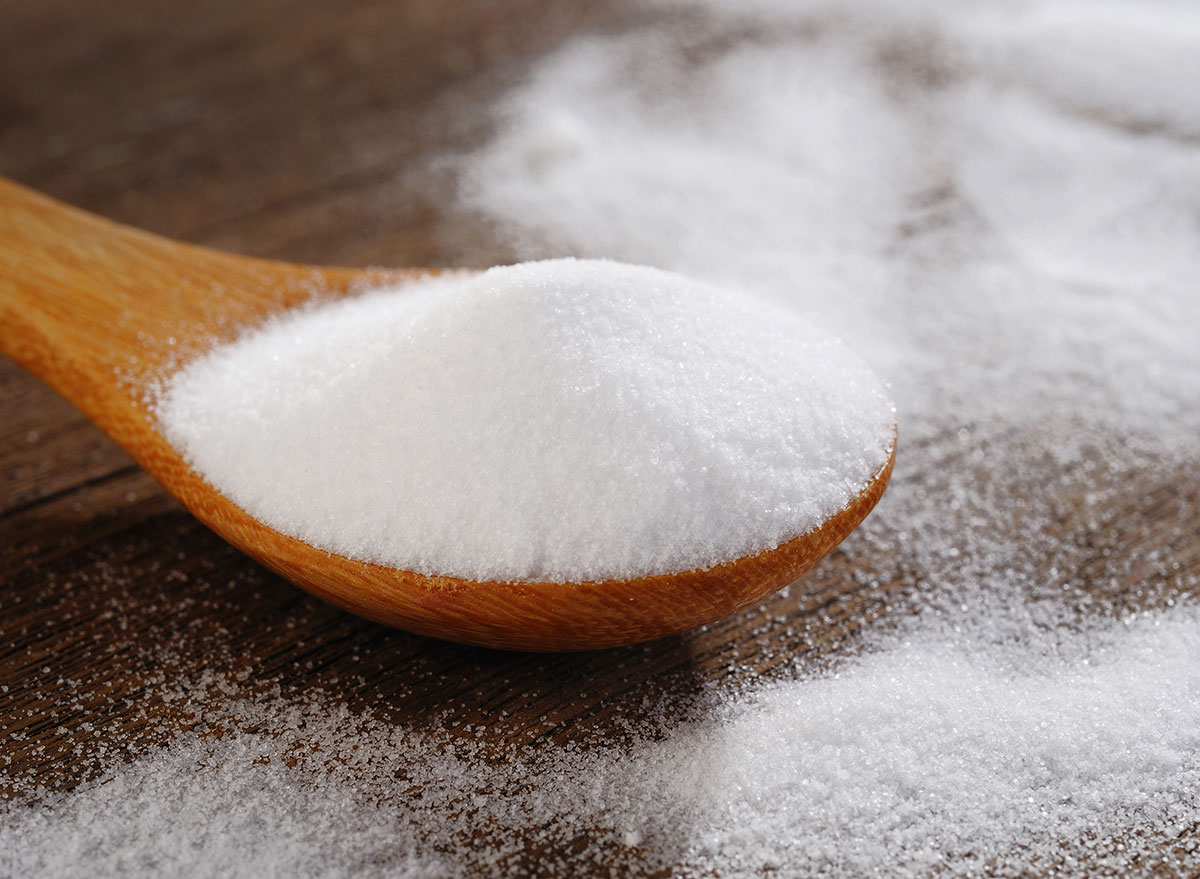
For some, especially regular bakers, the following statement may seem very obvious: baking powder and baking soda are not the same thing. In fact, they are not similar at all. In order to understand why these baking agents should not be used interchangeably, we have to break down the ingredients in each and explore the difference between baking soda and baking powder.
Baking soda
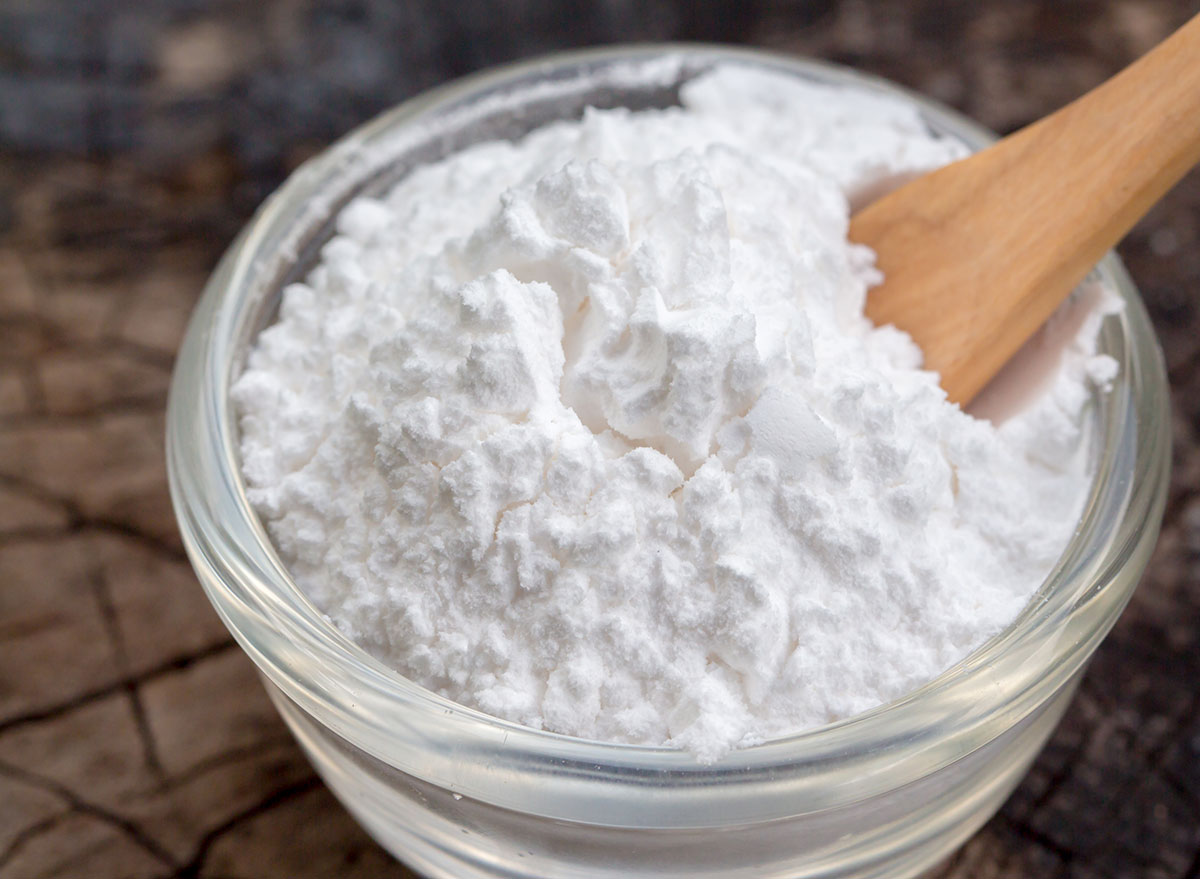
Aside from texture, the biggest distinction between baking soda and baking powder are their reactive properties. Baking soda only consists of one ingredient: sodium bicarbonate. This ingredient reacts when it's mixed with both a liquid and an acid, like that in buttermilk, lemon juice, or yogurt, for example. This reaction produces bubbles, or carbon dioxide. Does that fourth grade exploding volcano experiment come to mind? But don't worry, baking soda will not make your loaf of bread or cake explode. In fact, this process is completely necessary. The CO2 gas becomes trapped in the mix of ingredients and forces the dough or batter to rise through a process called chemical leavening. With baking soda, this process happens immediately, but remember: you need that reaction with an acid to make it rise.
Baking powder
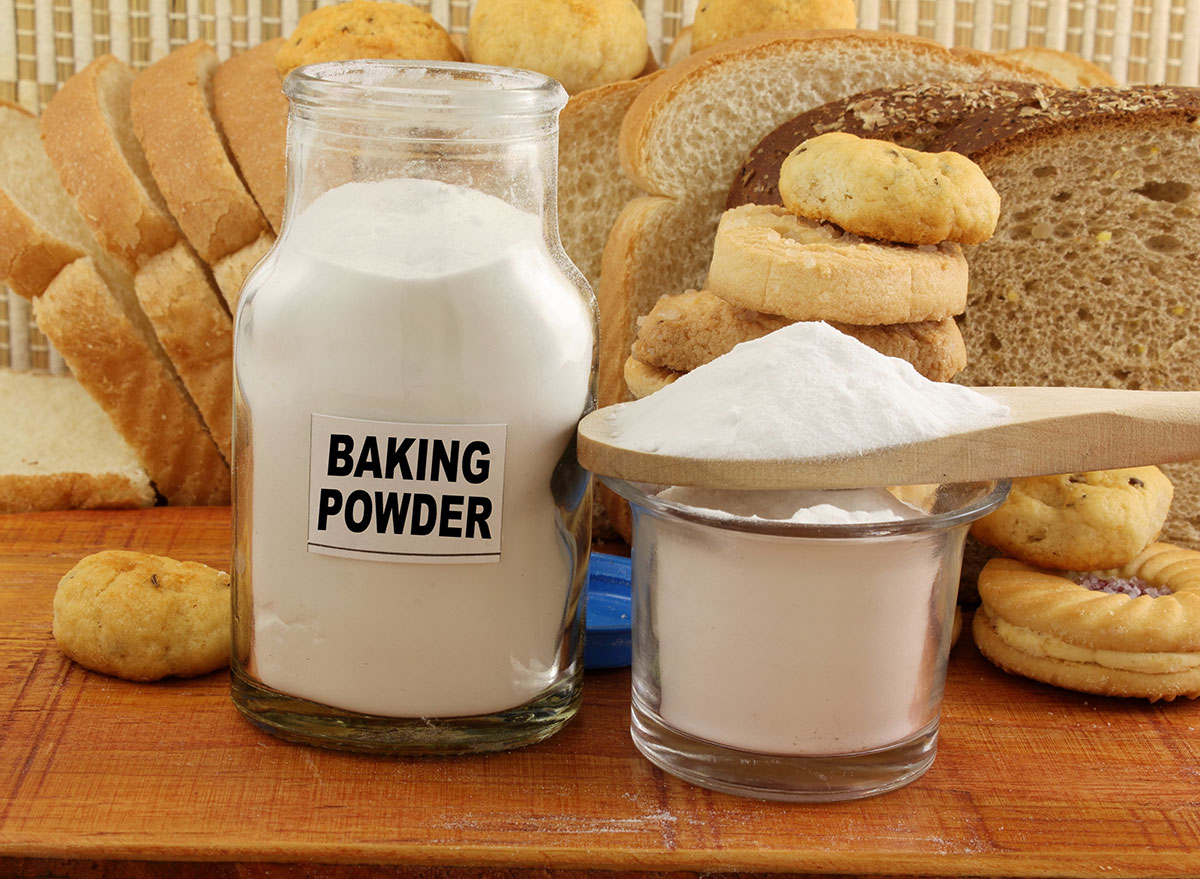
Baking powder, similarly, also contains sodium bicarbonate, but its other ingredients give this baking agent an entirely different function. Often cream of tartar is the supplemental ingredient in baking powder, and it's known as a powdered acid. With that acid already being present in the mix, all that baking powder needs is liquid in order to react. Typically, the baking powder that's sold in stores are labeled as "double-acting," which indicates that it reacts in two consecutive parts. The first reaction occurs almost instantaneously once the powder is dropped into the batter you're making. The second occurs once it's heated, which would be in the oven when you're baking, which is why it's such a common ingredient in cookie recipes.
So, what's the main difference between baking soda and baking powder?
The main difference between the two is that baking soda reacts abruptly and for only a short amount of time once mixed with liquid and an acid, whereas baking powder has both an abrupt response followed by a more delayed, long-lasting response in the oven once it's heated. The two work together to get the batter to rise, but they should never be swapped out for one another because each baking agent has an important (but separate) job. The simplest way to avoid a baking mistake: stock up on both to have on hand!
